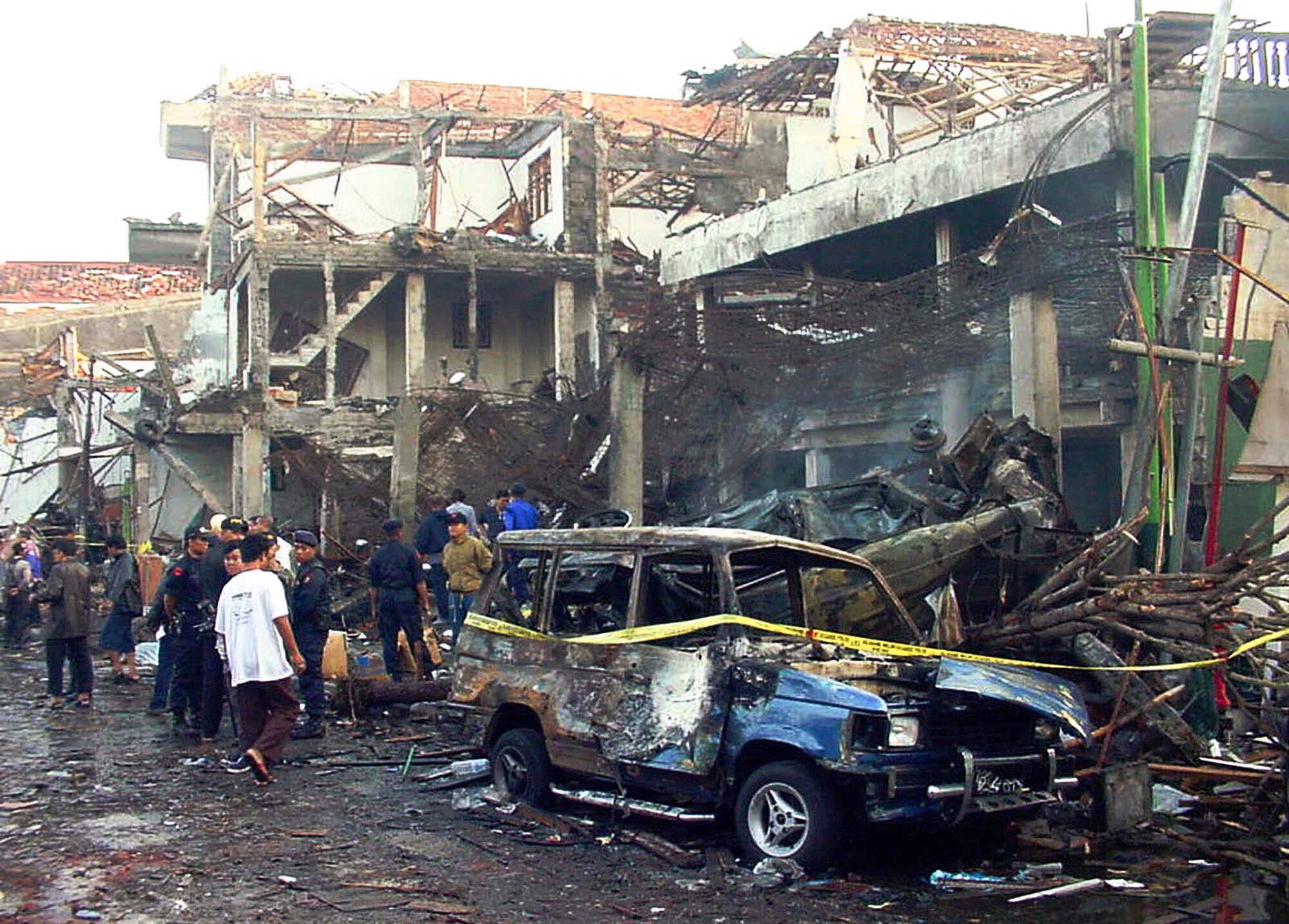Radicalised students from the school have since spread out across Southeast Asia, according to Benny Mamoto, a retired Indonesian police general who investigated the Bali bombings. Local media reported on Tuesday that authorities were considering demolishing the school building, with the head of the local religious affairs committee saying he had received complaints that it was still in operation, despite the building no longer being in use.

Malaysian police initially identified the suspect in Friday’s attack as a member of JI. But on Sunday, Home Minister Saifuddin Nasution described it as “a lone wolf attack” unrelated “to some big overall mission or a dangerous group”.
There was a danger that a splinter group could start carrying out attacks again, “especially now that there is no new leader in JI that could control them”, Adhe said.
Yet a regional security source told This Week In Asia that there was only a “very slim chance” of JI “re-establishing itself” in Malaysia to the advanced age of remaining members and their “mental faculty issues”.
“Many of the younger generation can’t even recall what JI is, let alone describe its mission,” said the source, who requested anonymity as they are not authorised to speak to the media. “Even young people from Luqmanul Hakim village subscribe to modern lifestyle now and perceive keeping up with social media as trendy.”
Authorities have yet to establish how the Ulu Tiram attacker was radicalised. “He is not a member of any terrorist organisation and he was not detected on social media platforms,” the security source said, adding that he may have been “inclined” towards Isis as investigators had found a sketched drawing among his belongings that looked like an Isis flag.

Isis sympathisers in Malaysia
Though JI’s presence in Malaysia may be on the wane, the threat of extremism remains as it knows no borders, former Indonesian militant Sofyan Tsauri told This Week In Asia.
And he has discovered Malaysian Isis sympathisers.
This is dangerous … These Malaysians are Isis sympathisers
“This is dangerous,” he said, adding that some of the Malaysian phone numbers associated with the WhatsApp, Telegram and Facebook chat groups he monitored could be traced back to Ulu Tiram.
“These Malaysians are Isis sympathisers,” said Tsauri, who has been helping with Indonesia’s counterterrorism efforts since his release from prison in 2015. “I private-messaged one person [on Isis social media] and he told me he is Malaysian.”
Malaysian extremists were indeed “lurking in cyberspace”, the regional security source told This Week in Asia, seeking a space to “nurture their ideologies, be it in a rhetorical form or by calling people to commit physical form of jihad … But their number is very small”.

Malaysian law enforcement coordinates with Indonesian authorities to keep tabs on extremist discourse and find the numbers involved “manageable for police monitoring capability”, the source said, while admitting that encrypted chats can make their job more difficult.
Tsauri said the children of JI militants, and younger people in general, tend to be more drawn to Isis than their parent’s choice of extremist organisation as the newer group is considered to be more “brave” and offer more “action”.
Muh Taufiqurrohman, a senior researcher at the Centre for Radicalism and Deradicalisation Studies, agreed. “JI is viewed as offering religious studies and paramilitary training but no action and attacks,” he said, adding that young people thought of JI as “no action, talk only”.
“Young people have grown impatient with JI and prefer to join pro-Isis groups which ask them to carry out attacks.”

Retired Indonesian police general Mamoto said there was “a need for cooperation and intensive exchange of information” to monitor the movements of Indonesian and Malaysian militants’ children, especially between countries “as we don’t know what networks they could possibly belong to”.
“When we underestimate or drop our guard, they will carry out attacks,” he said.
However, the regional security source insisted that there was declining interest in Isis-related content among Malay speakers.
An Isis-affiliated group recently announced the launch of a Malay language “media foundation” to translate Isis content in an attempt to boost interest, the source said.

